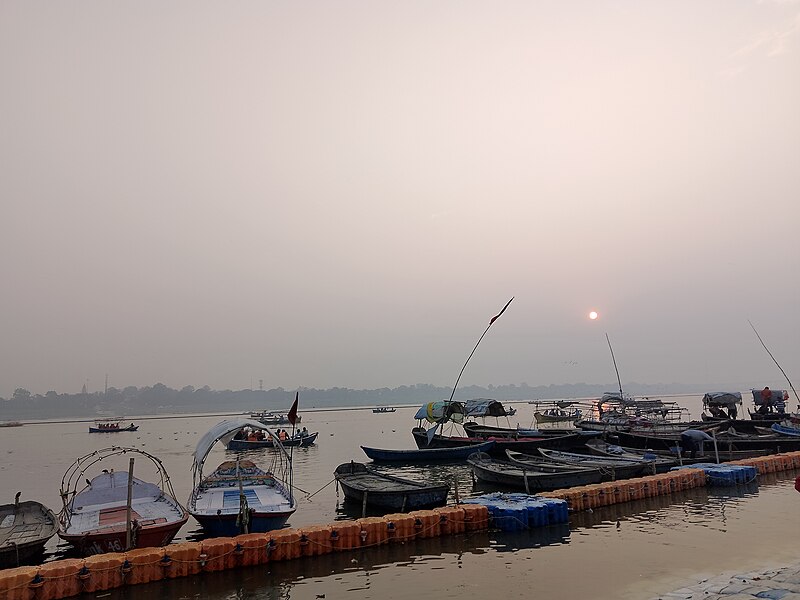Politicians’ emotional atyachar stabs democracy
Ravi Shanker Kapoor | November 13, 2016 8:54 pm

Senior Bharatiya Janata Party leader Subramanian Swamy should be lauded for his bold stand on the Sutlej-Yamuna Link issue. He has correctly called the questioning of the Supreme Court’s ruling as a failure of democracy. Actually, it is even worse; it is an assault on the rule of law and pandering to the basest human impulses.
“Once the Supreme Court has ruled and I have taken the stand in the case of both Karnataka and Tamil Nadu. Questioning the Supreme Court order means democracy in fail. The whole idea of court system is that both sides have strong case and ultimately somebody has to decide,” the Rajya Sabha member said.
Unfortunately, his colleagues in the BJP and leaders in other parties are bereft of sagacity and intelligence. The myopic BJP and Congress politicians of Punjab and Haryana, as also of Karnataka and Tamil Nadu, refuse to recognize the fact that by disregarding the verdict of the highest court they are preparing the ground for anarchy and anarchists. Today, do they have the moral authority to slam Aam Aadmi Party boss Arvind Kejriwal, who embraced the title of anarchist two years ago? Do they really believe that their criticism of Kejriwal will carry any conviction? What is the difference between the established parties and the AAP?
Further, as I mentioned in the article ‘SC on SYL and debauchery of national parties’ on this website, do the national parties have one stand on the contentious SYL issue? Chief Minister Parkash Singh Badal, heading the SAD-BJP government in Punjab, has thundered that “not a drop of water” will be allowed to be taken out of the state.
Since the BJP has not refuted the Punjab Chief Minister, it is safe to draw the conclusion that it supports him. But then how does this stand square with that of Haryana Chief Minister Manohar Lal Khattar’s diametrically opposite position over the subject. Khattar has hailed the Supreme Court decision and congratulated the people of the state.
So, what is the stand of the country’s largest party which is in power at the Centre, in Punjab and Haryana, and a number of other states?
Similarly, does the Congress have any position over the issue? Badal’s theatrics are reciprocated by state Congress chief Amarinder Singh who has resigned as Member of Parliament; his party MLAs too have resigned in protest. Amarinder is aghast at “the injustice meted out to” Punjab by the apex court verdict. However, his party’s chief spokesperson Randeep Surjewala, who hails from Haryana, finds the verdict “historic and path breaking” that safeguards his state’s claim on SYL. “Victory for people, justice for Haryana. Satyamev Jayate!” he tweeted.
Badal’s posturing is still understandable, if not justifiable, for his party is confined to Punjab and has no intentions of becoming a major player in any other state or in New Delhi, but the BJP and the Congress have footprints all over the country. How can their leader afford to adopt mutually contradictory stands? Do they really believe that they can continue to fool the people of different states by speaking with forked tongue?
The real problem is that political parties have convinced themselves that raking up ‘emotive’ issues is the easiest path to success. Further, they believe, such issues help people forget the real things like social problems (drugs in Punjab and the adverse sex ratio in Haryana), economic concerns (job generation), rural distress, and urban decay. Worse, the emotive issues they raise pertain to basest human instincts—jealousy, resentment, pettiness, prejudice, casteism. And the issues thrive in a zero-sum universe: river water (whose supply is limited), reservations (again jobs and seats in government-run institutions are limited), and so on.
Small politicians—and most of them are Lilliputs indeed—don’t like to compete with each other in areas like generating power from unconventional sources of energy, desalinating sea water, or reforming the farm sector so that regions grow what is best suited to the soil and climate (rice cultivation is not meant for Punjab). For it is easier to arouse the feelings of anger and resentment than doing something good and constructive.
It is incumbent upon Prime Minister Narendra Modi to act upon the sage counsel of Swamy; he should discipline the Punjab government, even if means divorce with the Akalis; Indian democracy is more important than a political ally. Modi, who is eloquent while extolling the virtues of Indian democracy, has to demonstrate that he believes in what he preaches. Otherwise, his oratory would always be regarded as disingenuous rhetoric.






























